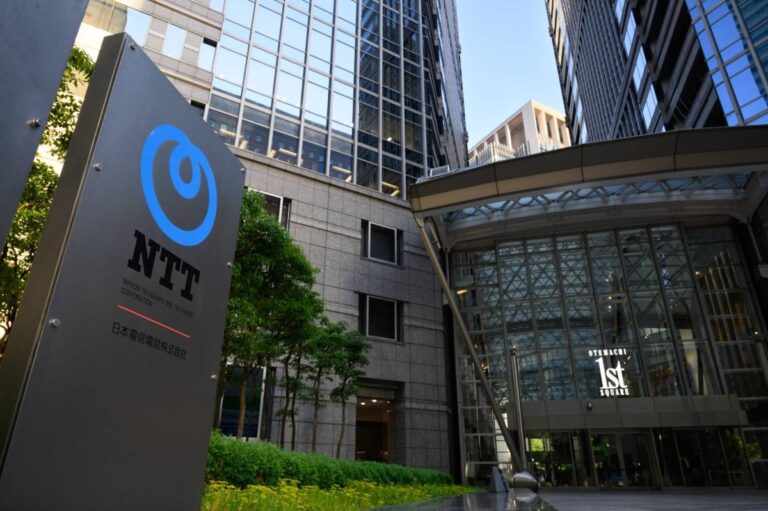Japan’s Nippon Telegraph and Telephone Corporation (NTT) is gearing up for a massive investment to capitalize on soaring demand for artificial intelligence services. The telecommunications giant’s data-center division announced plans for a multibillion-dollar expansion aimed at bolstering infrastructure to support AI workloads. This strategic move underscores the growing importance of AI in driving data-center growth and reflects NTT’s ambition to strengthen its position in the competitive global tech market.
Japan NTT Data Center Expansion Targets Soaring AI Workloads
NTT’s data-center division is aggressively scaling its infrastructure across Japan in response to a dramatic surge in AI-related workloads. The company is channeling billions of dollars into expanding capacity, aiming to cater to the increasing demand from enterprises harnessing advanced AI models and machine learning applications. This strategic investment comes amid a nationwide push for digital transformation, with NTT’s facilities expected to serve as critical hubs for cloud computing, data processing, and AI research.
Key drivers of this expansion include:
- Rising demand from tech startups and global corporations for scalable AI resources.
- Enhanced energy-efficiency measures to support sustainable growth in data center operations.
- Advanced cooling systems designed for high-performance computing environments.
Below is a snapshot of how NTT’s data center capacity is expected to evolve over the next three years:
| Year | Data Center Floor Space (sq meters) | Projected AI Workload Capacity (Petaflops) |
|---|---|---|
| 2024 | 150,000 | 45 |
| 2025 | 230,000 | 80 |
| 2026 | 320,000 | 130 |
Strategies Behind NTTs Multibillion-Dollar Investment in AI Infrastructure
NTT’s approach to scaling its AI infrastructure hinges on a multi-faceted investment strategy designed to meet the surging demand for high-powered data processing. Central to this strategy is the expansion of their data centers with cutting-edge hardware optimized for AI workloads. This includes deploying next-generation GPUs, advanced cooling systems, and high-density server architectures to maximize efficiency and reduce latency. By focusing on these technological enhancements, NTT aims to attract global enterprises looking to accelerate AI research and deployment.
Additionally, NTT is leveraging strategic partnerships and geographic diversification to ensure resilience and market agility. Key elements include:
- Collaborations with semiconductor leaders to secure chip supply amid global shortages
- Building data centers in AI hotspots across Asia and Europe for reduced data transit times
- Implementing robust security frameworks to meet stringent compliance standards for sensitive AI workloads
- Investing in renewable energy sources to power data centers sustainably
| Investment Focus | Impact | Timeline |
|---|---|---|
| AI-Optimized Hardware | Up to 40% boost in processing speed | 2024-2026 |
| Global Data Center Expansion | Access to 3 major AI markets | 2024-2025 |
| Renewable Energy Integration | 30% reduction in carbon footprint | 2025 onwards |
Experts Recommend Optimizing Data Center Efficiency to Meet Growing AI Demand
Industry leaders emphasize that unlocking the full potential of AI hinges on enhancing the operational efficiency of data centers worldwide. As AI workloads exponentially increase, experts advocate for an integrated approach encompassing advanced cooling technologies, energy-efficient hardware, and innovative data management systems. This holistic strategy not only mitigates soaring energy consumption but also ensures sustainability in handling complex algorithms and massive data throughput.
Among the key recommendations, specialists highlight the following:
- Implementing AI-driven predictive maintenance to minimize downtime and optimize resource allocation.
- Adoption of liquid cooling solutions to reduce heat and improve hardware longevity.
- Leveraging edge computing frameworks to decentralize data processing and relieve core data center loads.
| Efficiency Measure | Impact | Estimated Savings |
|---|---|---|
| AI Predictive Maintenance | Reduces system failures | 15% downtime reduction |
| Liquid Cooling | Enhances heat management | 20% energy savings |
| Edge Computing | Distributes data load | 30% bandwidth efficiency |
Closing Remarks
As Japan’s NTT accelerates its multibillion-dollar investment in data-center infrastructure, the move underscores the growing urgency among global tech firms to scale capacity in response to surging demand for AI applications. Industry observers will be watching closely to see how NTT’s strategic push influences competition and innovation in the rapidly evolving AI landscape.




